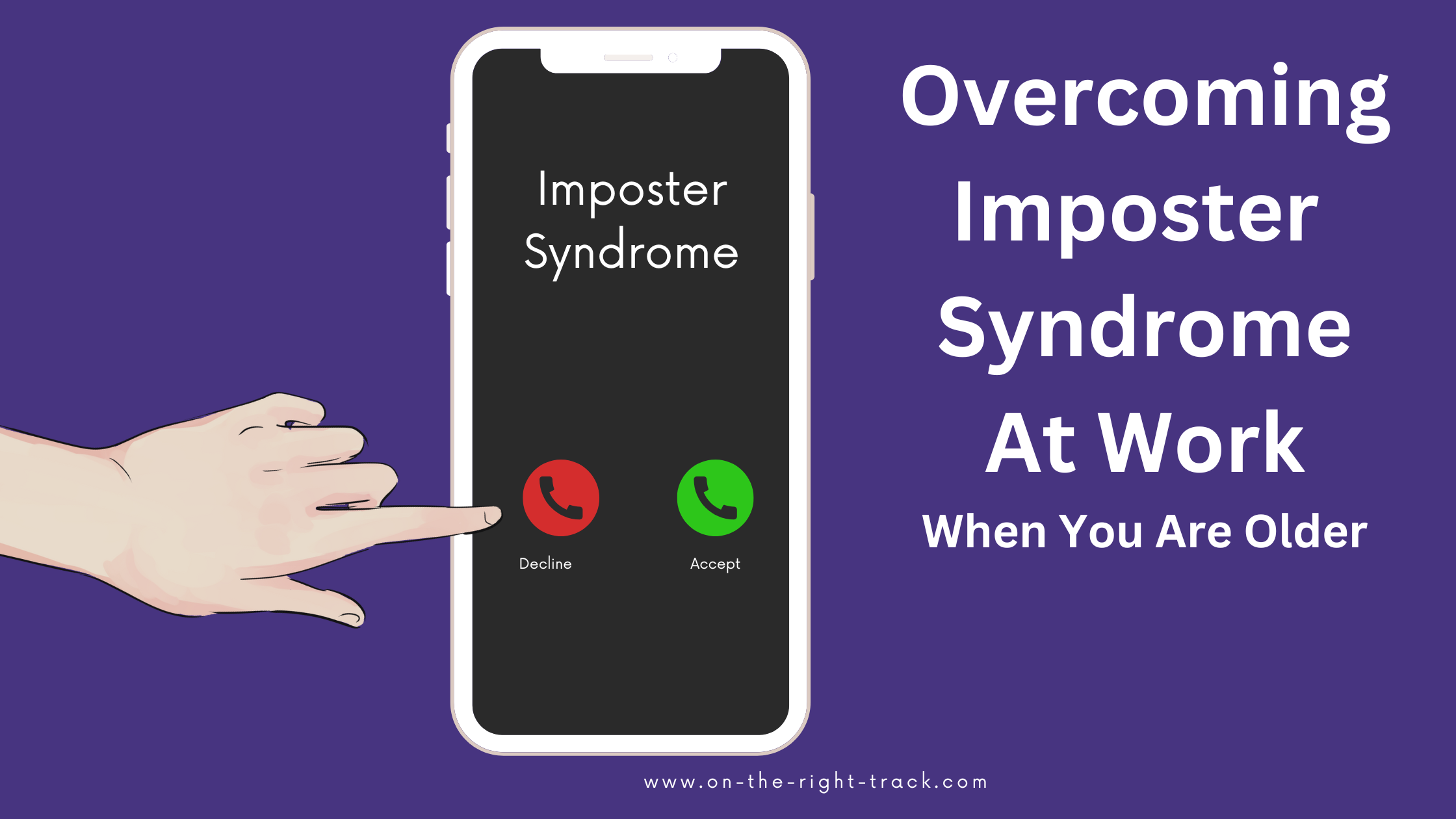I’m in my late 50s, and I still suffer from imposter syndrome at work from time to time. It hurts me when I compare myself to the younger and often more educated people I work with! What I thought would end with maturity has instead resurfaced!
When I started my first full-time job, I was fresh out of college, significantly younger than everyone else, and completely lacking in confidence in what I was supposed to be doing and how to do it.
I learned quickly and got a few promotions along the way. Each time, however, I felt like an imposter—some young kid pretending to know what I was doing and making it happen.
I understood imposter syndrome fully and was well aware that was what I was feeling. Nearly two-thirds of adults experience imposter syndrome. (The 2023 Anatomy of Work Global Index)
Now the tables have turned, and I feel the opposite experience. I’m now one of the older ones in the room, and the room is filled with people with multiple degrees, fresh and new education, and the energy that only youth bring you.
Imposter syndrome at work is not age-dependent. You can experience it at any point in your career. You can feel that self-doubt thinking about your education, degree, experience, and opinion. That self-doubt reminds you that your experience is decades old, your education is no longer relevant, or your opinion is outdated. You dread being called out on these things, too, and it hurts your professional growth and confidence.
Imposter syndrome is a psychological pattern when we doubt our accomplishments and fear of being exposed as a fraud. If you are well into your career, imposter syndrome can occur when you work with younger colleagues with more education or accreditation than you don’t have. Recognizing that imposter syndrome is a common experience and does not reflect your true abilities or worth is essential. It happens because we compare ourselves to our colleagues and underestimate or discount our own achievements.
To combat imposter syndrome:
- Acknowledge Your Value. We need to be able to look in the mirror and see what we offer to the team. Don’t compare yourself to others only to find yourself coming up short; instead, look at what you offer without the comparisons.
You have valuable experience, skills, and perspectives. Look at your past achievements and their positive impact on your role. Identify the qualities that set you apart and provide value to the team.
Think back to that younger version of yourself as you look at your current self. What did you want back then that you have now?
When I was first starting, I remember thinking that my colleagues had so much experience to learn from that I lacked. I felt that my opinions didn’t have any credibility behind them. The older you does have valuable experience, even if it is from 20 years ago. The older you knows that your opinion matters and you shouldn’t hold back from sharing it because your confidence has taken a nose dive. Look at what you used to want to have and give yourself a pat on the back, acknowledging that you have had those experiences.
- Keep Willing to Learn. Those around you may have more education or accreditation than you have, but that doesn’t mean you should stop learning. You don’t have to get your master’s degree to keep up, but you do have to be willing to learn. We need a growth mindset and prioritize continual learning. Please don’t get stuck telling yourself that the way you learned was better or that you are unwilling to adapt because you are too old. Those are excuses for not being willing to grow and learn.
Your experience does count as on-the-job experience, which your younger colleagues don’t have. However, continue to expand your knowledge and skills by reading, attending workshops, online training, and openly discussing with other professionals.
- Celebrate and Learn from Mistakes. Learn to acknowledge your gains and identify that you are learning from your mistakes. Success isn’t just about degrees or salary; it is about your impact. Do the others you work with value your contributions? Do you consider the slips you’ve made epic fails or a stepping stone to learning more? Imposter syndrome often causes us to be overly sensitive to our mistakes, assuming that others don’t make them. Be willing to talk to others to discover what they’ve done to avoid them happening again.
Statistically, high achievers in more senior positions are more likely than average to experience imposter syndrome (The 2023 Anatomy of Work Global Index). At the back end of your career, you might identify as a high achiever, which explains why your imposter syndrome has resurfaced.
Focus on the facts and not on your feelings. The feelings of self-doubt are based on fear and not facts or reality.
I’m getting older each day, and that’s a good thing. I shouldn’t allow my great experiences to be lost in my self-doubt. I’ve learned to stop making jokes about my age and set myself up like I’m past my prime. I’m not. I’ve learned not to let what others accomplished reflect on what I’ve accomplished.
Imposter Syndrome is not my friend, and it isn’t yours either. Identify it, deal with it, and congratulate yourself on your successes without comparing yourself to others. We’ve earned this maturity and need to share what we learn with others instead of letting it keep us quiet and unsure.
This article was written by Rhonda Scharf and not by Artificial Intelligence.










